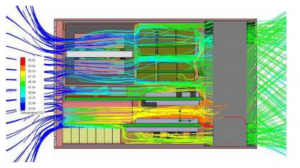Hold on folks, I’m about to get highly normative.
You see, I keep running into people who claim to do “public policy” for a living, or their business card says “Director of Public Policy.”
But when I talk to them, I find out they don’t know anything about public policy. Worse, they don’t care. What most of these people do for a living is “trying to win” some game.
So public policy becomes “communications,” when there is a need to convince people that something is good for them, or supporting politicians directly, when simple communications doesn’t quite cut the mustard.
At best, I would call this work advocacy. But “Director of the Stuff We Want” does not sound so good, so we get “Director of Public Policy.”
Okay, whatever, I’m not an idiot. I get how things work in the real world. Down in the scrum, there is no public good, there is no “what is best?” There are only people fighting for what they want, and we all pretend that sorta kinda over enough time, we end up with outcomes that are a reasonable balance of everyone’s interests, intensity of interests (particularly important if you like guns), and resources (particularly important if you have lots of money).
Except that process seems to be whiffing a bit these days, no?
What I wish for “public policy” would be for the field to somehow professionalize, to set norms of behavior, to set some notion of this-bullshit-is-too-much. Maybe, if so many people purporting to offer policy analysis weren’t so entirely full of crap all the time, we could one day reach the point where people would take policy analysis half seriously again.
So, in the interest of brevity, here are some signs your policy work may be pure hackery:
- You talk in absolutes. If you’re in the business of telling someone that solar power or electric utilities or oil and gas companies or wind turbines or nuclear are wonderful or evil, you probably are not doing public policy work. You’re just confusing people and wasting everyone’s time and attention.
- your salary includes a bonus for successfully causing / stopping something
- you will not admit publicly to any shortcoming of your preferred position
- you do not even read work that comes to different conclusions than yours
- if you arrive at conferences in a private jet
I also notice a lot of people who “do” public policy are also attorneys. That makes sense — knowing how the law works certainly helps. But lawyering and policy work should not be the same. Lawyers have a well-developed set of professional ethics centered around protecting their clients’ interests while not breaking any laws. This is flying way too low to the ground for good policy work. The policy world should aspire to a higher standard. Based on the low esteem most folks feel for the legal profession, it seems reasonable that if we ever hope for people to take policy work seriously, we’ll need to at least view “our clients” more broadly than “who pays our salary.”
So, what is public policy? Well, I think it’s the process by which the impacts of choices faced by government are predicted and the results of choices already made are evaluated. It takes honesty, humility, and a willingness to let data update your conclusions.
Back in Real Life, public policy professionals, of course, also need skills of persuasion and influence in order advocate on behalf of their conclusions (and their employers’ conclusions, natch). But for the love of god, if you skip the analytical step, you’re not doing public policy, you’re doing assholery.

